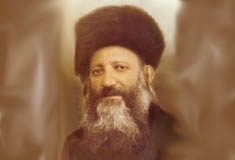Why Silence Matters: Halachic Insights on Talking in Shul
הרב שי טחןטו אלול, תשפד18/09/2024Why Silence Matters, Halachic Insights on Talking in Shul
תגיות:דיבור בבית כנסתתפילהשתיקה
Halacha addresses the prohibition of speaking in shul in three different scenarios: first, during tefillah; second, during the reading of the Torah; and third, speaking in shul in general, even when the congregation is not engaged in prayer.
the prohibition of speaking in shul in three different scenarios: first, during tefillah; second, during the reading of the Torah; and third, speaking in shul in general, even when the congregation is not engaged in prayer.
Speaking during prayer
The strictest prohibition of all is speaking during prayer. The Shulchan Aruch states that one may not talk at all during tefillah, even during chazarat hashatz, when one might think it’s permissible to speak since they are not actively praying. However, the Shulchan Aruch emphasizes the severity of this prohibition, noting that the sin of talking at this time is so grave that the person would not be able to bear the punishment. Furthermore, anyone who hears someone talking during chazarat hashatz is instructed to rebuke them strongly.
This ruling, which allows for reprimanding a person who talks during prayer, is unprecedented and raises the question: why is it so severe? The answer lies in the nature of this sin. Normally, when a person sins, they bear the consequences themselves. However, in this case, their talking harms everyone in the shul.
The Mishnah Berurahקכד ס"ק כז) ) explains that this sin is so damaging that talking in shul can lead to the destruction of the shul itself. Moreover, not only is the talker's own prayer rejected, but they also cause the prayers of everyone else in the shul to be rejected. Many people wonder why their prayers go unanswered, feeling that despite their sincere efforts, they don’t receive a response. The reason could be exactly this: either they or someone else in the shul is talking during tefillah, hindering the prayers from being accepted.
The mefarshim explain that whenever a person speaks during tefillah, they create a spiritual cloud that hovers over the shul, blocking the prayers from ascending. (ספר יערות דבש ח"א דרוש ד עמוד לג)
Thus, one should carefully choose where they pray to ensure their prayers are answered and to avoid the temptation of joining in conversations during tefillah. (חיי אדם בצוואה בית אברהם)
Rav Moshe Sternbuch (תשובות והנהגות ח״א סימן קנז) shares a frightening testimony from the Gerrer Rebbe, who demonstrated how refraining from talking in shul provides protection to the entire community.
This principle takes on even greater significance during times when Am Yisrael is at war, as the Torah states, "Hashem will fight for you, and you shall be silent." This verse conveys the message that Hashem will fight our battles if we remain quiet and refrain from talking during tefillah.
(מקדש ה' לרבינו יוסף די אוזידה תלמיד בעל מדרש שמואל, בית ישראל מגור)
Speaking during the Torah reading
During the Torah reading, it is also forbidden to talk—not only during the actual reading but even between the olim(שולחן ערוך סימן קמו ס״ב) . This means that even when there is a pause to call up the next person for an aliyah, it remains prohibited to speak.
The reason talking is not permitted, even between olim, is to prevent someone from continuing to speak once the Torah reading resumes. It's difficult to abruptly stop a conversation mid-sentence or thought when the baal koreh begins reading. However, there are a few exceptions to this rule. It is permitted to say "Chazak u'Baruch," "Yashar Koach," or "Mazal Tov" to someone, and singing for a special event is allowed. Typically, these are done between aliyot, and by the time the reading resumes, the congregation has already stopped singing and is ready to listen attentively.
Speaking in Shul
There is also the general prohibition against talking in shul. The Torah commands us to show reverence for the sanctuary, which includes the shul. Halacha(שולחן ערוך סימן קנא) advises against being light-headed in shul, which encompasses joking and behaving in a manner that lacks respect. The Shulchan Aruch specifically cites the example of not speaking meaningless words.
The mefarshim explain that meaningless words include discussions about business, politics, current events, and similar topics. In contrast, talking about Torah and matters of yirat shamayim is encouraged. The Zohar states that someone who talks in shul is not only disrespecting Hashem but also delaying our redemption, and such individuals have no share in the God of Israel.
Using our phone in Shul
This also includes other disrespectful behavior, such as using one’s phone to check the news, browse apps, or text people during prayer. If one must use their phone, they should step outside the shul and return when finished. To put this into perspective, imagine you’re an employer in a meeting with a potential employee, and in the middle of the conversation, they take out their phone and start browsing different websites. Would you want to hire someone like that?
When we go to shul, the purpose is to express our respect for the Creator. Now, imagine while we’re trying to show respect, with Hashem present and watching us, we take out our phone and scroll through the world’s distractions. This behavior could be seen as one of the most disrespectful things one can do in the presence of Hashem.

Speaking during prayer
The strictest prohibition of all is speaking during prayer. The Shulchan Aruch states that one may not talk at all during tefillah, even during chazarat hashatz, when one might think it’s permissible to speak since they are not actively praying. However, the Shulchan Aruch emphasizes the severity of this prohibition, noting that the sin of talking at this time is so grave that the person would not be able to bear the punishment. Furthermore, anyone who hears someone talking during chazarat hashatz is instructed to rebuke them strongly.
This ruling, which allows for reprimanding a person who talks during prayer, is unprecedented and raises the question: why is it so severe? The answer lies in the nature of this sin. Normally, when a person sins, they bear the consequences themselves. However, in this case, their talking harms everyone in the shul.
The Mishnah Berurahקכד ס"ק כז) ) explains that this sin is so damaging that talking in shul can lead to the destruction of the shul itself. Moreover, not only is the talker's own prayer rejected, but they also cause the prayers of everyone else in the shul to be rejected. Many people wonder why their prayers go unanswered, feeling that despite their sincere efforts, they don’t receive a response. The reason could be exactly this: either they or someone else in the shul is talking during tefillah, hindering the prayers from being accepted.
The mefarshim explain that whenever a person speaks during tefillah, they create a spiritual cloud that hovers over the shul, blocking the prayers from ascending. (ספר יערות דבש ח"א דרוש ד עמוד לג)
Thus, one should carefully choose where they pray to ensure their prayers are answered and to avoid the temptation of joining in conversations during tefillah. (חיי אדם בצוואה בית אברהם)
Rav Moshe Sternbuch (תשובות והנהגות ח״א סימן קנז) shares a frightening testimony from the Gerrer Rebbe, who demonstrated how refraining from talking in shul provides protection to the entire community.
This principle takes on even greater significance during times when Am Yisrael is at war, as the Torah states, "Hashem will fight for you, and you shall be silent." This verse conveys the message that Hashem will fight our battles if we remain quiet and refrain from talking during tefillah.
(מקדש ה' לרבינו יוסף די אוזידה תלמיד בעל מדרש שמואל, בית ישראל מגור)
Speaking during the Torah reading
During the Torah reading, it is also forbidden to talk—not only during the actual reading but even between the olim(שולחן ערוך סימן קמו ס״ב) . This means that even when there is a pause to call up the next person for an aliyah, it remains prohibited to speak.
The reason talking is not permitted, even between olim, is to prevent someone from continuing to speak once the Torah reading resumes. It's difficult to abruptly stop a conversation mid-sentence or thought when the baal koreh begins reading. However, there are a few exceptions to this rule. It is permitted to say "Chazak u'Baruch," "Yashar Koach," or "Mazal Tov" to someone, and singing for a special event is allowed. Typically, these are done between aliyot, and by the time the reading resumes, the congregation has already stopped singing and is ready to listen attentively.
Speaking in Shul
There is also the general prohibition against talking in shul. The Torah commands us to show reverence for the sanctuary, which includes the shul. Halacha(שולחן ערוך סימן קנא) advises against being light-headed in shul, which encompasses joking and behaving in a manner that lacks respect. The Shulchan Aruch specifically cites the example of not speaking meaningless words.
The mefarshim explain that meaningless words include discussions about business, politics, current events, and similar topics. In contrast, talking about Torah and matters of yirat shamayim is encouraged. The Zohar states that someone who talks in shul is not only disrespecting Hashem but also delaying our redemption, and such individuals have no share in the God of Israel.
Using our phone in Shul
This also includes other disrespectful behavior, such as using one’s phone to check the news, browse apps, or text people during prayer. If one must use their phone, they should step outside the shul and return when finished. To put this into perspective, imagine you’re an employer in a meeting with a potential employee, and in the middle of the conversation, they take out their phone and start browsing different websites. Would you want to hire someone like that?
When we go to shul, the purpose is to express our respect for the Creator. Now, imagine while we’re trying to show respect, with Hashem present and watching us, we take out our phone and scroll through the world’s distractions. This behavior could be seen as one of the most disrespectful things one can do in the presence of Hashem.
הוסף תגובה
עוד מהרב שי טחן
עוד בנושא הלכה







